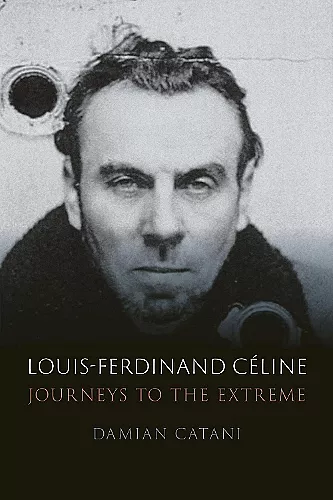Louis-Ferdinand Céline
Journeys to the Extreme
Format:Hardback
Publisher:Reaktion Books
Published:13th Sep '21
Should be back in stock very soon

Louis-Ferdinand Céline was one of the most innovative novelists of the twentieth century, and his influence both in his native France and beyond remains huge. This book sheds light on Céline’s groundbreaking novels, which drew extensively on his complex life: he rose from humble beginnings to worldwide literary fame, then dramatically fell from grace only to return, belatedly, to the limelight. Céline’s subversive writing remains fresh and urgent today, despite his abhorrent political views and the inflammatory pamphlets that threatened to ruin his reputation. The first English-language biography of Céline in over two decades, this book explores new material and reminds us why the author belongs in the pantheon of modern greats.
“In this major new biography of Céline, Damian Catani deftly weaves together the life and the work allowing each to illuminate the other in a brilliant portrait. One of the twentieth century’s most important literary figures, Céline emerges here in all his ambivalence, his outstanding talent as a writer matched only by his obvious flaws as an individual.” -- Ian James, Reader in Modern French Literature and Thought, University of Cambridge, and author of "The Technique of Thought" and "The New French Philosophy"
“One of the best French writers ever, who re-invented the very language of literature, and a complete SALOPARD.” -- Marie Darrieussecq
ISBN: 9781789144673
Dimensions: unknown
Weight: unknown
392 pages